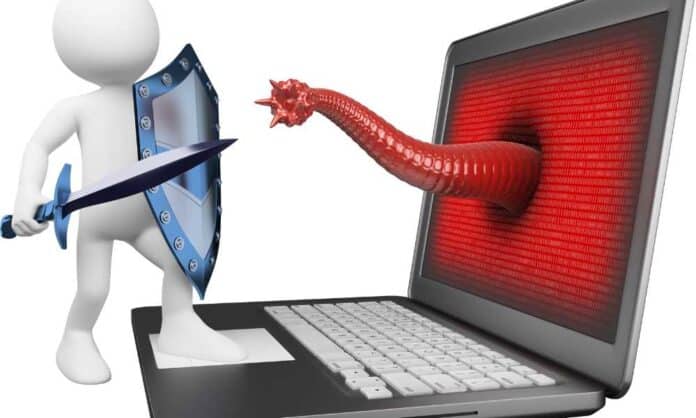Viruses are malicious digital programs that infiltrate your computer or network and damage files, steal personal information, and perform other harmful acts.
They can also cause your computer to shut down prematurely and run slower than usual.
Viruses can spread via email, floppy disks, USB drives and other types of storage media. They may also enter a system when someone clicks on an untrustworthy link or installs software that would otherwise be secure.
What is a computer virus?
Computer viruses are malicious programs that infiltrate and alter the way your computer runs. They may steal data or corrupt sensitive files, or they may attempt to launch ransomware attacks that demand a ransom in order to unlock the infected computer.
Most viruses spread via virus propagation – the process by which a virus infects another device, typically the host computer or file system on a network of connected computers. Viruses use various techniques to achieve this objective, such as downloading files from unsafe sources, opening email attachments or copying data from removable storage devices.
A virus is a malicious program that injects unwanted code into a host file (the file used by the virus to replicate itself). Each time this file runs, more virus code will be executed and placed elsewhere on your machine – either into that same file or other files on that same machine. This process can drastically disrupt normal operations for an infected program or even corrupt it completely.
What is an antivirus?
An antivirus is a software program that shields your computer or device from viruses and malware, such as those which can do damage, steal personal information, send spam emails or spy on you. With an antivirus installed, it becomes much harder for malicious programs to infiltrate and infect your device with these harmful agents.
Antivirus software employs techniques such as signature-based analysis, machine learning/artificial intelligence and behavior monitoring to detect malware. It may also come equipped with firewall features which block unwanted access to your PC or network.
Some programs allow you to scan files or your entire hard drive at any time. Others will scan devices automatically as they are used.
Signature-based analysis utilizes a database of malware’s digital fingerprint, or “signatures.” If an antivirus detects a match, it will alert you and attempt to eliminate the threat. However, its database must be regularly updated as new strains of malware emerge and hackers alter code in an effort to circumvent detection.
How do I protect my PC from viruses?
Computer viruses are malicious software programs that can cause serious physical and financial harm to your PC. They have also been known to lead to data loss or theft of personal information.
There are several ways to protect your PC from viruses. One way is avoiding downloading infected files from unofficial websites. Another method involves scanning email attachments that appear suspicious or are not from a reliable source.
Another way to stay secure is by updating your system regularly. Developers release security patches to patch any potential flaws in an operating system, so keeping it up to date is essential for keeping it safe.
To protect your PC from viruses, the most effective method is to have reliable antivirus software installed. This will block most threats from invading your system.
What is antivirus software?
In 2022, we must employ antivirus software to safeguard our PCs against an ever-increasing range of malware infections and new viruses. There are malicious individuals out there who wish nothing more than to steal from and cause havoc by invading your privacy by accessing your machine.
In addition to scanning your files and programs for known threats, most antivirus software also runs real-time scans on connected devices. These checks look for incoming files or code that could be harmful, including malicious software downloaded from the internet.
Modern antivirus programs use heuristic and machine learning algorithms to identify new types of malwares like trojyjlcjj8, adding information about them to their detection database. This is often an effective method for spotting unknown threats before they cause more damage.

